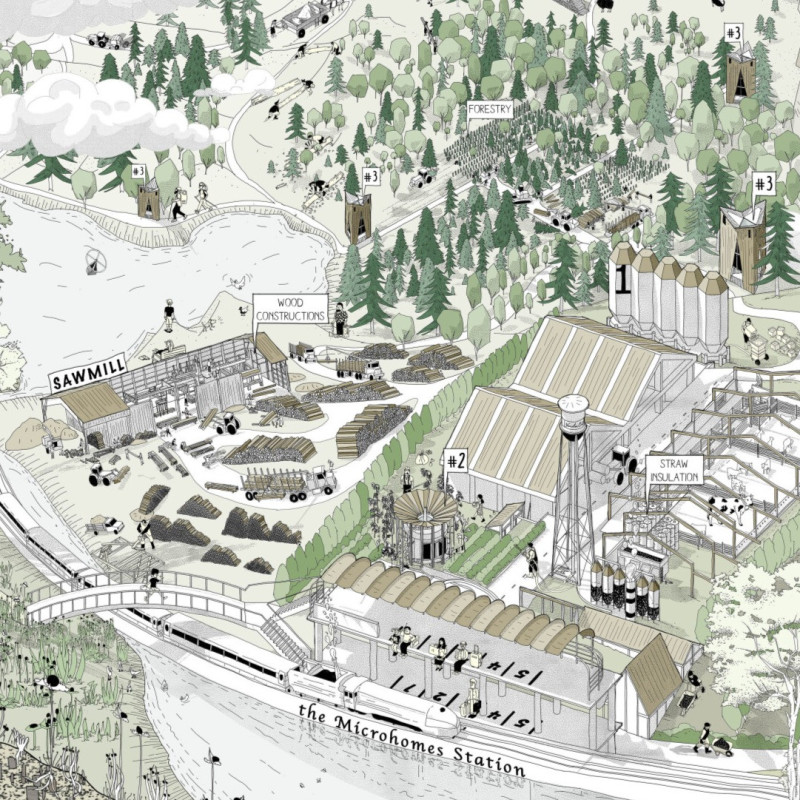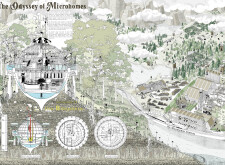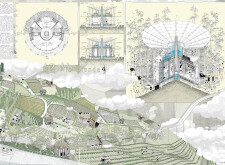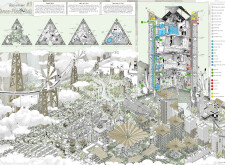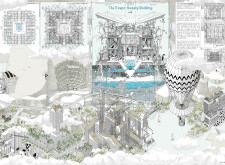5 key facts about this project
### Overview
Located in a mountainous region adjacent to rural landscapes, the Odyssey of Microhomes project presents a pioneering approach to sustainable living through a collection of micro-home designs. Each unit is carefully crafted to optimize limited space while incorporating ecological principles, operational efficiency, and contemporary design aesthetics. The intent is to create a habitat that harmonizes with the environment while addressing modern housing challenges.
### Spatial Strategy
The design ethos centers on micro-living, prioritizing comfort and functionality within compact footprints. Each microhome contributes to a broader living ecosystem wherein community interaction, environmental connection, and technological integration coexist. Collaborative resource utilization and a focus on environmental stewardship underpin the spatial configuration, enhancing communal ties among residents. Individual designs feature versatile space arrangements, such as multi-functional areas that can adapt to various user needs.
### Materiality and Sustainability
This project emphasizes the use of eco-friendly materials to mitigate environmental impact. Timber serves as the primary structural material, celebrated for its renewability and aesthetic warmth. Extensive glass applications throughout the designs maximize natural light, contributing to energy efficiency. Local stone is strategically employed for foundational support and exterior aesthetics, while recycled materials promote a circular economy within the broader design framework. Each microhome also incorporates features like green roofs, rainwater harvesting, and renewable energy systems, aligning with the project's sustainability objectives.


